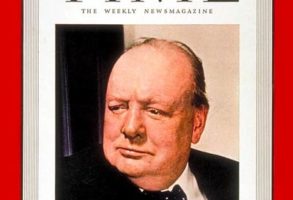
Published December 1, 2020
Humorlessness has become a national comorbidity. Besides the other afflictions of 2020, the country is suffering from a comic deficiency that has weakened the social immune system. “A horse walks into a bar . . .” Forget it—bars are closed.
Americans have sailed into an almost perfect storm of humorlessness. I have not heard a single good joke about the virus—and only a few bad ones. In the past, anxiety, dread and anger have sometimes been good for laughs—but not this time. Fear of invisible floating drops, stifling masks, the jittery adjustments of “social distance,” and the sense that life has gotten weird, normality as emergency and emergency as normality, as if the universe had shifted a few inches while we were sleeping—such immediate dislocations merge with the larger, existential distress (isolation, claustrophobia, financial suffering, children at home, mortgage or rent unpaid, empty refrigerator) to produce an atmosphere that is toxic to humor.
That’s only the beginning: Add the bitter politics, the disputed presidential election, the yammering provocations of cable television news and the surreal quality of the memes on social media, of Rudy Giuliani, bug-eyed and sweating streams of black hair dye.
Even before the masks and shutdowns, American humor had been suppressed by the totalitarian taboos. Political correctness and cancel culture have woven entire new value systems around a thousand grievances, inflating them with self-importance, to produce an intensely intolerant and humorless new political culture. Most comedians are nonideological. They will tell any joke that works. Political correctness has driven plenty of them out of the business, to be replaced by earnest, strident partisans, some of whom host late-night network TV shows.
Humor is a jack-in-the-box. A joke depends on surprise. But orthodoxies in America have become as drearily predictable as those in East Germany. When was the last time you were surprised by someone’s political opinion? Without surprise, there is no laugh—and far less of the sanity that ought to be the end result of laughter. No funny joke ever came with the party’s seal of approval. Self-mockery can be redemptive.
American politics has rarely been as funny or as fun as we think we remember it was. But the context of 2020—the novelty of it, the here-be-dragons, the near-hysteria on social media—has made this year’s election especially fraught.
Joe Biden is mostly good-humored, which is better than nothing, but not the same as being funny. He’s 78, and one feels the touch of winter. Donald Trump is a showman, but sometime after going into politics, he buried his real sense of humor beneath layers of his other shtick—ego, aggression, bad manners, scorn. Has he ever emitted a truly spontaneous laugh? His preferred idiom is sarcasm, which grows tedious, relentless, mean. Spy magazine decades ago nailed him as a “short-fingered vulgarian,” but by the time he got to the White House, he had become Hitler—quite a leap. Both parties give caricature a bad name. Alec Baldwin’s impersonation of Mr. Trump on “Saturday Night Live” is a lazy exaggeration—unobservant, unfunny—and yet it became a ritual favorite of the left, like a “Punch and Judy” show.
To review the history: George Washington was not funny. Our funniest president, Abraham Lincoln, was a depressive who managed jokes during the country’s grimmest years. Lyndon Johnson was a savagely funny man, but he was King Lear as cowpoke and in his regime the country practically fell apart. JFK was witty. Richard Nixon was hopeless. Ronald Reagan came to politics from show business. His taste in jokes was eclectic. One of the high points of my life was hearing William F. Buckley Jr. , in his languid and unmistakable upper-class drawl, try to imitate for me Reagan’s delivery of an indelibly stupid joke about an undertaker’s assistant who hears a corpse in the basement of the funeral home singing “Danny Boy” through an improbable orifice. In the middle of the joke, Buckley was overcome with embarrassment at the crudity of it, which made it even funnier.
Bill Clinton is neither here nor there in the story of presidential humor. But his wife’s hammering humorlessness (at least in public) became historic: part of the reason America got Donald Trump. Barack Obama has a light touch; he is funny in an elegantly self-centered way, in the style of a 1930s comedy. For eight years, his status as the first black president gave him partial immunity from the honest and probing ridicule to which any American chief executive is entitled.
Laughter is the first casualty of ideology, and here we are. The white woke are incapable of humor; all ideologues are asses. In the right-wing neighborhoods, Tucker Carlson’s merry howls of derision may be as good as the humor gets. His Fox News colleague Sean Hannity, to say the least, is not a comedian, and Mark Levin is as grim as Robespierre with a toothache.
Can anything bring American humor back? The country needs to be deprogrammed. Everyone should watch Henny Youngman videos for 10 minutes a day. It would be a start. Those who can’t stand Youngman should read P.G. Wodehouse.
Lance Morrow is the Henry Grunwald Senior Fellow at the Ethics and Public Policy Center.








